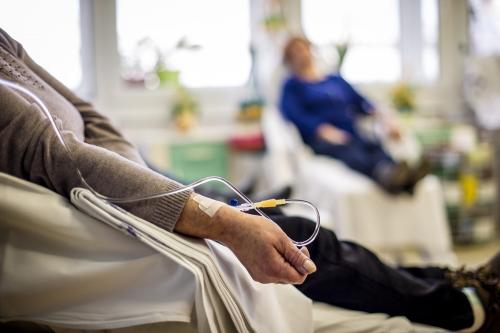The Evolution of Chemotherapy: From Traditional to Targeted Therapies

The journey of chemotherapy from its traditional forms to the advent of targeted therapies marks a significant evolution in cancer treatment. This transition reflects a deeper understanding of cancer biology and a move towards more personalized and effective treatment strategies. Hyderabad, a city known for its advanced medical facilities, houses some of the best oncologists who are at the forefront of implementing these innovative treatments.
The Beginnings of Chemotherapy
Chemotherapy began in the early 20th century, not as a cancer treatment, but as a byproduct of chemical warfare research. The discovery that mustard gas, a chemical weapon used during World War I, could reduce white blood cell counts led scientists to explore its potential for treating lymphoma, a cancer characterized by high white blood cell counts. This marked the inception of chemotherapy, which initially involved the use of single-agent alkylating drugs to damage the DNA of cancer cells, preventing their replication and growth.
The Era of Combination Chemotherapy
As the understanding of cancer's complexity grew, it became evident that using a single chemotherapeutic agent was often insufficient to combat the disease effectively. This led to the development of combination chemotherapy in the mid-20th century, where multiple drugs with different mechanisms of action were used together to target cancer cells more aggressively. This approach aimed to attack the cancer from multiple angles, reducing the likelihood of drug resistance and improving treatment outcomes. Combination chemotherapy became the cornerstone of cancer treatment, offering hope to patients with various types of cancer.
The Shift Towards Targeted Therapies
The late 20th and early 21st centuries witnessed a paradigm shift in cancer treatment with the advent of targeted therapies. Unlike traditional chemotherapy, which indiscriminately attacks rapidly dividing cells, targeted therapies aim to block specific molecular targets associated with cancer cell growth and survival. This shift was made possible by advances in molecular biology and genomics, which allowed for the detailed characterization of cancer cells and the identification of specific genetic mutations and signaling pathways that drive cancer progression.
Targeted therapies offer several advantages over traditional chemotherapy. By specifically targeting cancer cells, they minimize damage to normal, healthy cells, thereby reducing side effects and improving the quality of life for patients. Furthermore, targeted therapies can be tailored to the individual's specific genetic makeup, embodying the principles of personalized medicine.
The Best Oncologists in Hyderabad: Dr. Vijay Anand Reddy
Dr. Vijay Anand Reddy- the Best Oncologist in Hyderabad has been instrumental in integrating targeted therapies into cancer treatment regimens. These specialists combine their deep understanding of cancer biology with state-of-the-art diagnostic tools to identify the specific molecular abnormalities in each patient's cancer. This precision allows them to select targeted therapies that are most likely to be effective for each individual, significantly improving treatment outcomes.
The Impact of Targeted Therapies
The impact of targeted therapies on cancer treatment has been profound. Drugs like imatinib (Gleevec) for chronic myeloid leukemia (CML) and trastuzumab (Herceptin) for HER2-positive breast cancer have transformed once fatal diseases into manageable chronic conditions for many patients. The success of these therapies has spurred the development of numerous other targeted agents, each designed to interfere with specific aspects of cancer cell biology.
The Future of Chemotherapy and Targeted Therapies
The evolution of chemotherapy towards targeted therapies represents a significant advancement in cancer treatment. However, the journey does not end here. The future promises the integration of targeted therapies with other emerging treatments, such as immunotherapy, which harnesses the body's immune system to fight cancer. The combination of targeted therapies with immunotherapies and other novel treatments holds the potential to further improve outcomes and offer cures for cancers that were once deemed untreatable.
Moreover, ongoing research into the mechanisms of drug resistance and cancer metastasis continues to inform the development of next-generation targeted therapies. These future treatments will likely be even more specific and effective, with fewer side effects than current therapies.
Conclusion
The evolution of chemotherapy from traditional to targeted therapies marks a significant milestone in the fight against cancer. It reflects a shift from a one-size-fits-all approach to a more personalized and precise form of treatment. The best oncologists in Hyderabad are at the forefront of this evolution, leveraging targeted therapies to offer new hope to patients. As we look to the future, the continued integration of targeted therapies with other emerging treatments promises to revolutionize cancer care further, moving us closer to a world where cancer can be effectively managed or even cured.
Post Your Ad Here
Comments